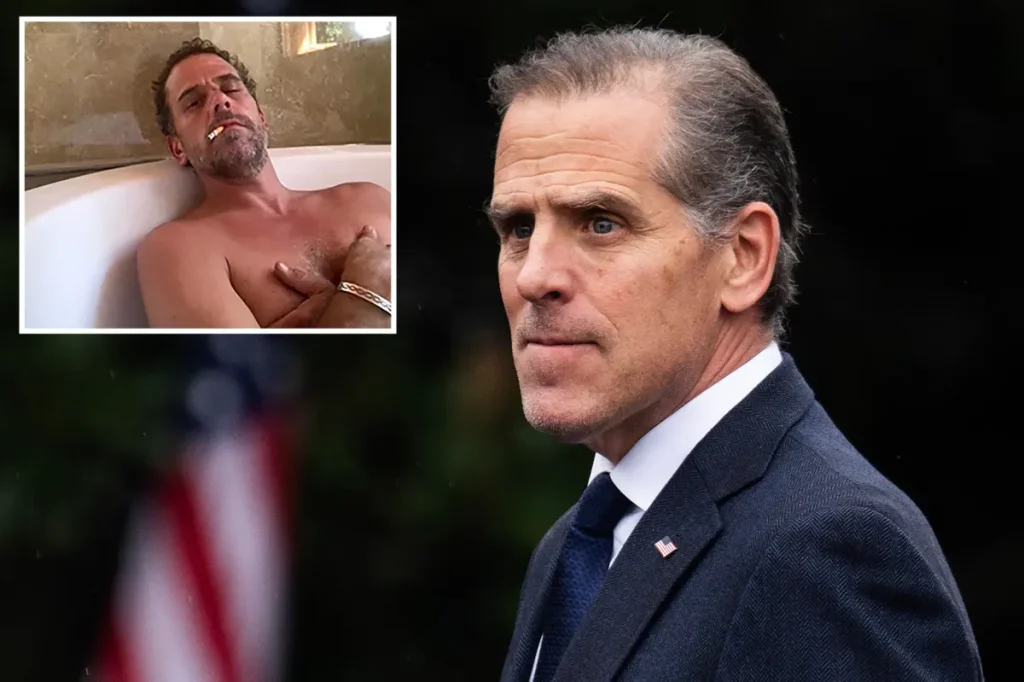The Hunter Biden Laptop Controversy: A Reflection in Hindsight
In a revealing interview with journalist Tommy Christopher, Hunter Biden, the 55-year-old son of former President Joe Biden, addressed the controversial “laptop from hell” saga that emerged weeks before the 2020 presidential election. When asked directly if he believed the laptop in question belonged to him, Hunter responded with an emphatic “No, 100%.” He explained his confusion about the situation when the story first broke, describing the narrative as “very, very, very jumbled.” This interview represents one of the most extensive discussions Hunter has had about the laptop controversy that became a significant political flashpoint during his father’s presidential campaign and continued to follow both men throughout the Biden presidency.
The laptop story first gained national attention when The New York Post published a series of articles based on materials allegedly recovered from a hard drive that Hunter had abandoned at a Delaware computer repair shop in 2019. According to the repair shop owner, John Paul Mac Isaac, he discovered concerning information on the device and alerted the FBI. Mac Isaac also provided a copy of the hard drive to an associate of Rudy Giuliani, former New York City mayor and advisor to then-President Donald Trump, who subsequently shared it with The Post. The resulting stories suggested potentially inappropriate business connections between the Biden family and foreign entities, accusations that the Biden campaign and their supporters quickly characterized as Russian disinformation. The controversy surrounding the laptop’s authenticity and the timing of the revelations led to significant debate about political bias, foreign interference, and media responsibility during a critical election period.
In his conversation with Christopher, Hunter maintained that he has no recollection of dropping any laptop off at a repair shop, a claim he has consistently made since the story first emerged. However, he did make a notable concession during the interview, acknowledging that the “vast majority” of the content attributed to the laptop was genuine. This nuanced position represents a shift from earlier blanket denials, as Hunter attempted to distinguish between the physical device itself and the information attributed to it. “There’s really never a laptop,” he stated, “but there was a hard drive, and that hard drive became just a dumping ground for things that were hacked, stolen, fabricated, manipulated, real.” This characterization suggests an effort to reconcile the undeniable authenticity of much of the material with his continued insistence that he never abandoned a laptop at the Delaware shop.
The contents of the hard drive proved deeply personal and professionally damaging for Hunter, as they included embarrassing images documenting his struggles with substance abuse and encounters with prostitutes. These images would eventually play a role in legal proceedings against him on federal gun charges, a case that concluded with his conviction before his father pardoned him during the final days of his presidency. Beyond the personal embarrassment, the laptop’s contents raised serious questions about the Biden family’s international business connections, particularly in Ukraine and China, and whether then-Vice President Joe Biden had been inappropriately involved in his son’s business affairs. These questions persisted throughout Joe Biden’s presidency, fueling Republican investigations and remaining a political liability for the administration.
The laptop saga highlights the complex intersection of personal privacy, political campaigning, media responsibility, and national security concerns in modern American politics. When the story initially broke, major social media platforms restricted sharing of The Post’s reporting, citing concerns about potential foreign disinformation – a decision that later provoked significant criticism when much of the material was authenticated. The suppression of the story and subsequent revelations about its authenticity became a rallying point for conservatives who argued that powerful institutions had interfered with the election to protect Biden. Meanwhile, many liberals continued to emphasize the dubious provenance of the materials and questioned the motivations behind their release, even while acknowledging the authenticity of at least some content.
As the years have passed, the laptop controversy has become emblematic of the polarized information environment that surrounds American politics, where agreement on basic facts often seems impossible to achieve. Hunter Biden’s latest comments, acknowledging the authenticity of much material while continuing to question the laptop’s origin story, are unlikely to resolve these tensions. For supporters of the Biden family, his explanation offers a way to understand how authentic personal data could have been weaponized in a political context. For critics, his continued denial about dropping off the laptop, despite substantial evidence to the contrary, represents ongoing dishonesty. What remains clear is that the “laptop from hell,” as it became known, will likely continue to feature in American political discourse as a touchstone for debates about media bias, political corruption, and the responsibilities of political families – regardless of Hunter Biden’s personal recollections about a computer repair shop visit in Delaware.









